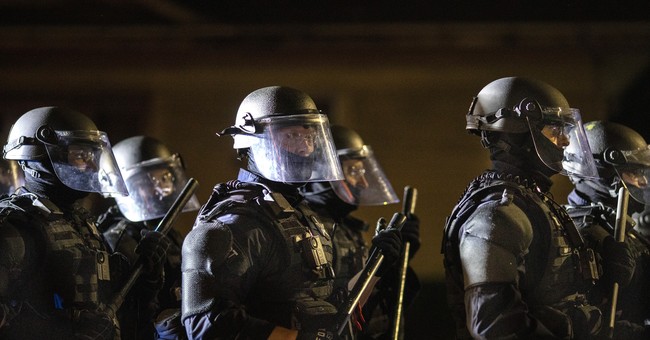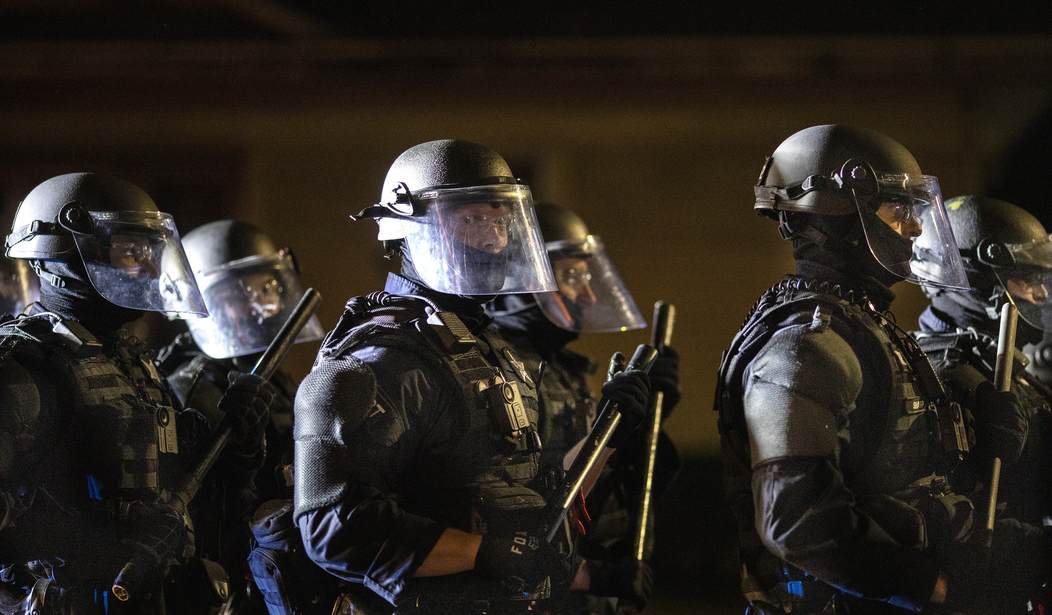
There’s been a lot of chatter in the last 24-48 hours about the disclosure that, earlier in the summer, members of the Oregon State Police were “cross-deputized” as Special Deputy US Marshals as part of their rendering of assistance to federal law enforcement agents at the Hatfield Federal Courthouse in Portland.
Some of this chatter has been meaningful, and some has been meaningless. For example, cross-deputization is not necessary for a local law enforcement officer to be a “witness” to a federal crime. He can report what he sees to a federal agent, and the federal agent can file an affidavit in support of a federal complaint based on what the local officer tells him. Cross-Deputization does allow that local officer to be an affiant on a criminal complaint himself, but that only eliminates a procedural step in the process — it doesn’t make something “possible” that was “not possible” before.
I’ve also read opinions that cross-deputizing the State Police Officers makes any assault on them a federal crime rather than state crime — which the local district attorney will not file — even if the assault occurs away from federal property and is unrelated to a federal investigation. I’m not certain that claim is correct.
But what I am certain of is that by having the State Police cross-deputized, and working with federal law enforcement agents in securing the federal courthouse — or other federal facilities in and around Portland — the State Police now come under the provisions of 18 U.S.C. Section 1114. That statute states as follows:
Whoever kills or attempts to kill any officer or employee of the United States or of any agency in any branch of the United States Government (including any member of the uniformed services) while such officer or employee is engaged in or on account of the performance of official duties, or any person assisting such an officer or employee in the performance of such duties or on account of that assistance, shall be punished …
The punishment provisions refer to the crimes of “murder” and “manslaughter” within the “special maritime and territorial jurisdiction of the United States”. A simple way to understand what is meant by that phrase is to think of it as a reference to a National Park or “onboard an aircraft” over the US.
A “Special Deputy” is not, generally speaking, considered an “officer or employee” of the United States, but he/she is officially a “person assisting such an officer or employee” in the manner that Oregon State Police are assisting federal agents in securing the federal courthouse in Portland.
Note that this statute uses the words “kills or attempts to kill”. Those are “generic” in the sense that both murder and manslaughter — voluntary and involuntary — all fall within the scope of the statute. Sections 1111 and 1112 define “murder” and “manslaughter” under federal law, and Section 1113 deals with the crime of “attempted murder” and “attempted manslaughter.”
Given the escalation in the violence and the nature of some items that have been used by rioters in Portland, the opportunity to make cases for “attempted murder” and “attempted manslaughter” is increasing. Throwing a potentially deadly object at law enforcement agents — depending on the object thrown — can meet the elements of “attempted murder.” Striking an officer with a club could fall within the statute depending on the object used. Use of explosive devices could fall within the statutes. Setting fire to an occupied building could fall within the statute.
These charges would be brought by the US Attorney in federal court. Release pending trial would be unlikely, and dismissal of the charges without a guilty plea to some other offense would be unlikely.
The only condition that would apply to the charge is that the Deputized State Police Officer must be assisting a federal officer or employee in the performance of his or her duties, and that the crime was committed against the person because of that assistance. It would not be necessary for the Deputized Officer to be on federal property, but the Deputized Officer must be assisting the federal agents in enforcing federal law while protecting the federal property.
The cross-deputization basically creates a lot more potential “victims” who fall under the protection of these statutes, thereby increasing the “odds” that violent actions taken by the rioters might expose them to prosecution in federal court.














Join the conversation as a VIP Member